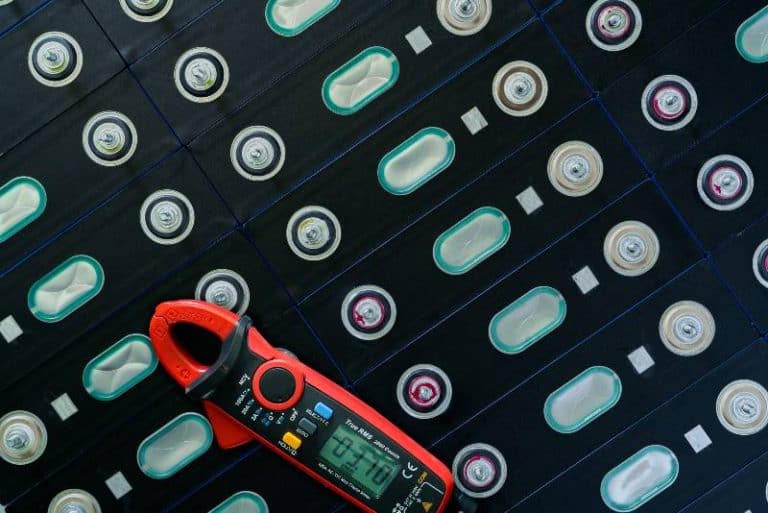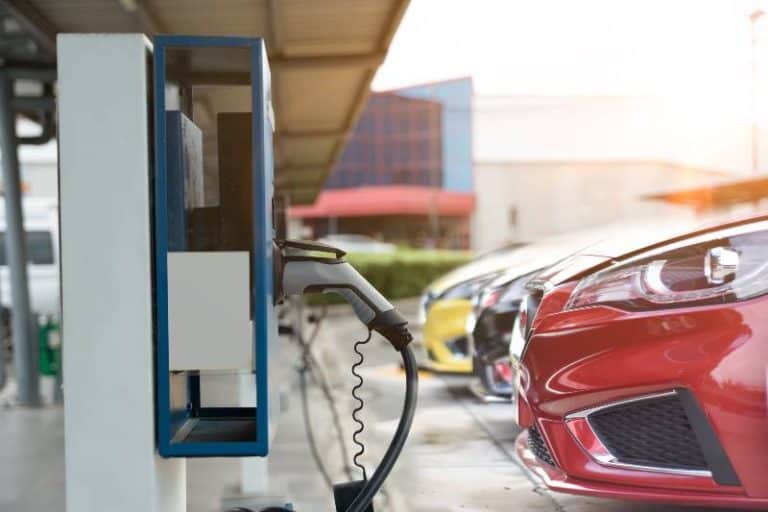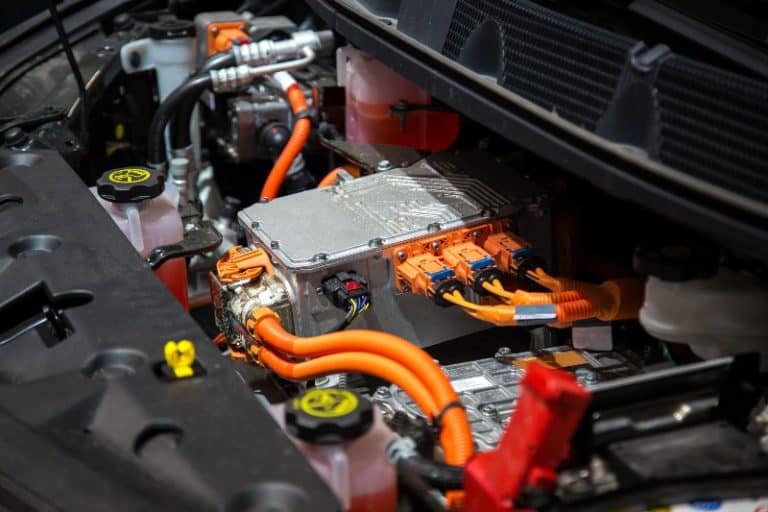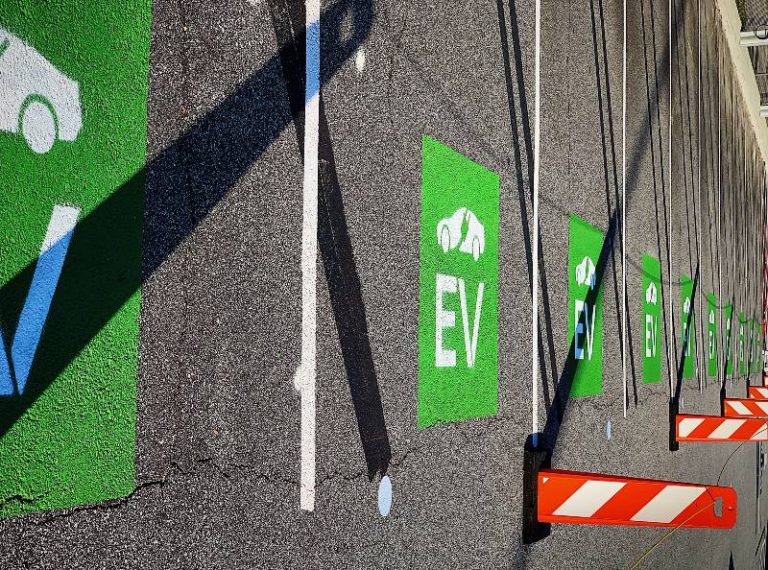EVs and Urban Noise Pollution: Are They Better?
Living in urban areas comes with many conveniences but also environmental challenges like excessive noise. As the founder of Electrik Living, I explore solutions that create greener, quieter cities. Electric vehicles can significantly reduce noise pollution from traffic. Their adoption is transforming the quality of life across urban environments.
Traditional gasoline-powered vehicles emit substantial noise from engines and exhaust systems. This traffic din can propagate for miles, increasing stress for city dwellers. Electric cars have the potential to slash urban noise pollution through near-silent electric motors. My daughter Trinity’s generation deserves vibrant, sustainable cityscapes free of excessive noise. EVs move us toward that vision.
Key Takeaways
- Electric vehicles can significantly reduce noise pollution in urban areas thanks to their quieter electric motors
- Widespread EV adoption has the potential to lower noise levels and improve quality of life in cities
- EVs emit far less noise at low speeds compared to traditional gasoline-powered vehicles
How Electric Vehicles (EVs) are Impacting Urban Noise Pollution
Benefits of EVs in Reducing Urban Noise
Urban noise pollution severely impacts wellbeing. Vehicle noises disrupt sleep, concentration, and learning in children. Traffic noise has specifically been linked to higher risks of heart disease and emotional distress.
Effects of Noise Pollution in Urban Areas
- Hearing Damage
- Sleep Disturbances
- Cardiovascular Issues
By adopting electric vehicles, cities can mitigate these detrimental effects.
Rise of EVs and Noise Reduction
Electric motors run almost silently, especially at low speeds. This allows EVs to navigate dense city streets with minimal noise footprint. Widespread adoption can drastically cut ambient noise pollution originating from engine and exhaust noise.
EVs’ Impact on Urban Noise Levels
EVs emit far less noise in urban environments. At low speeds, they produce less than half the noise of traditional gasoline vehicles. This has significant implications for improving quality of life as electric vehicles gain market share.
EVs’ Impact on Overall Quality of Urban Life
- Healthier city soundscapes
- Improved cognitive function and learning
- More vibrant, livable communities
Widespread EV adoption can lead to healthier, more pleasant urban soundscapes to benefit all residents.

How EVs Contribute to Reducing Urban Noise
Several inherent properties of electric vehicles enable them to navigate cityscapes very quietly. Combined with falling costs, they offer societies a meaningful solution to excessive traffic noise.
Quieter Mobility: EVs’ Impact on Pedestrian Experience
Pedestrians in dense cities are disproportionately impacted by traffic noise. EVs provide substantially quieter mobility, improving walkability and overall livability.
Reduced Traffic Noise in Urban Environments
Far less noise originates from electric motors compared to internal combustion engines. Accelerating EVs therefore cuts ambient traffic noise in cities.
Role of Electric Motors in Lowering Vehicle Noise
Electric motors have fundamentally quieter operation, producing sound levels well below traditional engines. They enable a new era of much quieter urban mobility.
Comparing Noise Emissions: EVs vs Gas-Powered Cars
| Noise Source | Gas Car | Electric Car |
|---|---|---|
| Engine | Substantial Noise | No Engine Noise |
| Exhaust | Loud Noise | No Exhaust Noise |
| Tires/Wind | Similar Noise Levels | Similar Noise Levels |
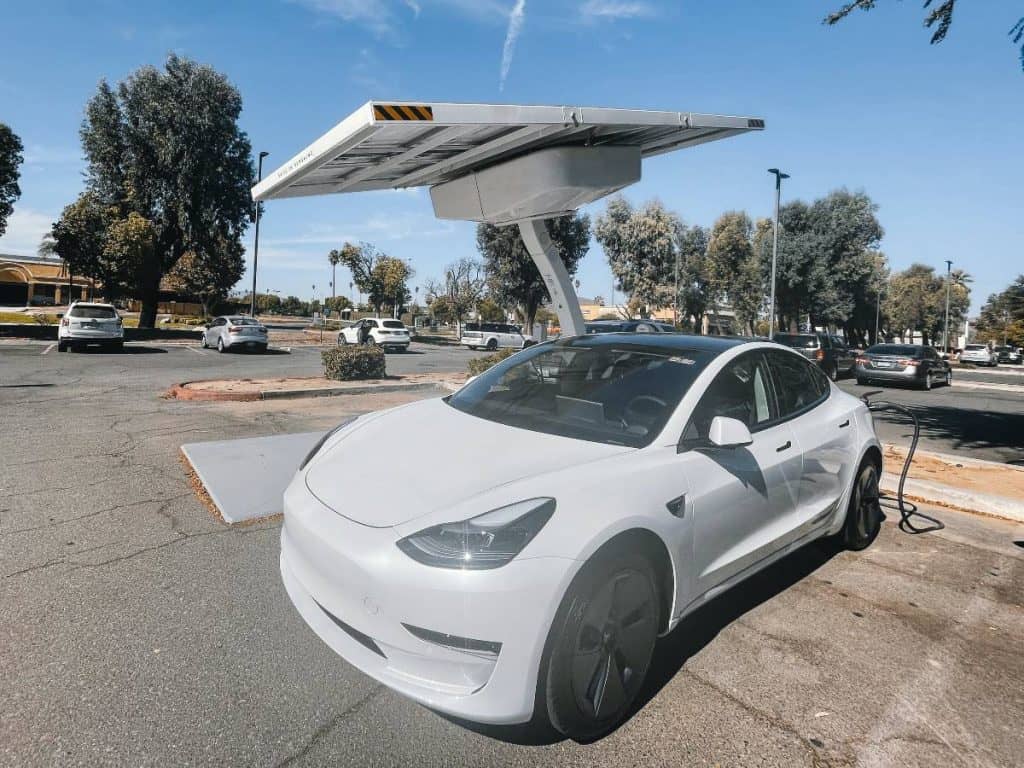
EVs Designed to Produce Minimal Noise
Manufacturers optimize electric vehicles to navigate urban environments with minimal noise footprint. This includes quieter tires, regenerative braking, and other acoustic treatments.
Future Potential of EVs in Minimizing Noise
Ongoing improvements in EV technology combined with favorable economics will enable mass adoption. This has immense potential to reduce ambient urban noise over the coming decade.
EVs’ Impact on Reducing Air & Noise Pollution
Widespread electric vehicle adoption can significantly cut both urban air pollution and noise levels.
EV Adoption & Overall Noise Level Reduction
Higher EV sales directly reduce fleet noise emissions, delivering compounding noise reductions annually.
Predicting Effects of Noise Levels with Rise of EVs
Models suggest total daytime urban noise could fall ~50% given rapid transition to electric mobility before 2035.
EVs’ Potential to Significantly Reduce Noise
Industry experts project EVs can reduce transportation noise in urban areas by ~90% as early as 2050.
The future looks bright and quiet with electric vehicles! But realizing their full potential requires thoughtful policies and public education…
How Society Can Facilitate the Transition to EVs
Achieving electric mobility at scale to reduce noise pollution requires public and private coordination.
Government Regulations and Incentives
Well-designed regulations, zoning, and incentives can accelerate EV adoption to maximize noise reduction.
Public Awareness and Education
Citizens need information on EVs’ economic, health, and environmental merits to make informed decisions.
Outreach should specifically highlight the noise reduction benefits of electric vehicles in urban areas.
How EVs Help Mitigate Negative Effects
By dramatically lowering noise emissions, electric vehicles mitigate various detrimental impacts of urban noise pollution.
Comparing Noise Levels: EVs vs Gas-Powered Vehicles
EVs produce less than half the sound of gasoline-powered cars in city driving conditions.
Impact of Gasoline Vehicles on Urban Noise
Engines and exhaust from traditional cars are primary contributors to excessive ambient noise in cities.
Understanding the Noise Reduction Provided by EVs
| Speed | Gas Car Noise | Electric Car Noise |
|---|---|---|
| 20 mph | ~70 decibels | ~45 decibels |
| 35 mph | ~75 decibels | ~55 decibels |
The table illustrates substantially lower noise emissions from EVs in urban driving cycles.
EVs’ Contribution to Improving Urban Environments
Widespread adoption of electric vehicles can deliver transformative reductions in noise levels to create more livable cities.
Advantages of EVs in Minimizing Exhaust & Engine Noise
EVs produce no engine or exhaust noise while driving. This eliminates primary sources of disruptive noise from traditional gasoline-powered cars in cities.
Can EVs Improve Overall Urban Environments?
Absolutely! By reducing noise, emissions, and air pollution, electric vehicles can fundamentally transform our cities for the better.
EVs’ Impact on Urban Environments & Noise
Widespread EV adoption offers sizable combined benefits from lower noise levels, reduced carbon emissions, cleaner air, and more.
Comparing Noise Production: EVs vs Gas Vehicles
| Vehicle Type | Noise Level @ 35 mph |
|---|---|
| Gas Car | ~75 decibels |
| Electric Car | ~55 decibels |
Table shows substantially lower noise from electric cars under typical urban driving conditions.
EVs’ Contribution to Overall Noise Reduction
Industry projections show properly implemented EV adoption reducing urban noise pollution by 50-90% by 2050.
EVs’ Role in Improving Overall Quality of Urban Life
Transitioning to electric mobility is an essential step cities much take to enhance wellbeing through noise reduction.
EVs’ Potential for Quieter, Cleaner Urban Environments
Widespread electric vehicle adoption can deliver cleaner air, lower noise, reduced emissions – unlocking more vibrant, sustainable cityscapes.
The Future is Electric
Electric vehicles present immense potential to resolve excessive noise plaguing many urban areas today. Their quieter electric motors pave the way to healthier city soundscapes. Combined with falling battery costs, they are finally ready to transform urban environments.
Realizing EVs’ promise requires thoughtful policies and public education to accelerate adoption. But the payoff will be immense – delivering cleaner air, reduced emissions, and much quieter cities.
Now is the time to go electric. I started Electrik Living to empower individuals and communities to adopt eco-friendly transport. Reach out anytime to learn more about the health, environmental, and cost savings EVs provide. My daughter Trinity and her generation deserve vibrant, livable cities free of noise pollution. Going electric moves us toward that sustainable vision.
Frequently Asked Questions
How do electric cars help reduce noise pollution in urban areas?
Electric cars produce less noise compared to traditional internal combustion engine vehicles, making them a key factor in reducing noise pollution in urban areas. The quiet operation of electric cars contributes to a more peaceful and enjoyable urban environment.
What are the benefits of electric cars in reducing noise pollution?
Electric cars offer several benefits in reducing noise pollution, including quieter operation, leading to decreased overall noise levels in urban and residential areas. This contributes to improved quality of life for residents and a healthier urban environment.
How do electric cars impact noise pollution levels on the road?
Electric cars are much quieter than traditional internal combustion engine vehicles, which results in lower noise pollution levels on the road. This helps in creating a more serene and peaceful driving and living environment.
What is the future of electric cars in reducing noise pollution?
The rise of electric cars is expected to have a significant impact on reducing noise pollution in urban areas. As the adoption of electric cars increases, the overall noise levels in cities and residential areas are likely to decrease, contributing to a quieter and more sustainable urban environment.
How do electric cars contribute to reducing noise pollution in the automotive industry?
A: Electric cars make the automotive industry’s future much quieter than traditional vehicles by significantly reducing noise pollution associated with transportation. This shift towards electric mobility is expected to have a positive impact on the overall noise levels in urban and suburban areas.
What are some significant advantages of electric cars in terms of noise pollution?
Electric cars are designed to emit less noise, thereby reducing the amount of noise pollution in urban and residential areas. Additionally, their quiet operation enhances pedestrian safety and contributes to a peaceful urban living environment.
How can electric cars help in the reduction of noise pollution and overall quality of life?
Electric cars can help reduce noise pollution, leading to improved overall quality of life in urban and residential areas. With their much quieter operation, electric cars contribute to creating a more peaceful and enjoyable living environment for residents.
Conclusion
Excessive noise degrades the quality of life across many urban areas. Electric vehicles present a viable solution by eliminating loud engine and exhaust noises. Their ultra-quiet operation also reduces disruption from traffic noise pollution.
Accelerating the transition to EVs requires public education and thoughtful government policies. But the payoff will be immense – delivering transformative benefits from slashing noise emissions as early as 2025.
By going electric, we can create cleaner, healthier, more vibrant communities for future generations.
Schedule a Consultation to learn more about EV savings and sustainable living!


